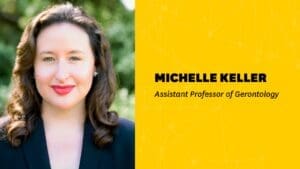La Opinion featured research by Jennifer Ailshire of the USC Leonard Davis School showing Hispanics and African-Americans are more likely than whites to get poor sleep. “The results of this study that are most surprising are not only that African-Americans and Hispanics are more likely to get inadequate sleep, but at a faster rate over time,” Ailshire said.
The South China Morning Post recently quoted Valter Longo of the USC Leonard School on the benefits of fasting-mimicking diets.
KPCC-FM’s AirTalk with Larry Mantle featured Jennifer Ailshire of the USC Leonard Davis School regarding her research that shows a sharp increase in the number of people sleeping six hours or less a night.
Wallet Hub featured a Q&A on elder abuse facts with Kate Wilber, Mary Pickford Foundation Professor of Gerontology at the USC Leonard Davis School of Gerontology, in an article on states with the best elder abuse protection. “Abusers can encourage secrecy or create fear,” Wilber said. “Keep the channels of communication open and have talks about risks if possible. Also recognize that fraud is common and that financial exploitation by family members is also common.”
The Scholar’s Strategy Network podcast, No Jargon, interviewed Jennifer Ailshire of the USC Leonard Davis School about the problems unique to older adults who are homeless, and what needs to change to help this growing, aging population.
Quartz quoted Paul Irving, distinguished scholar in residence at the USC Leonard Davis School and chairman of the Milken Institute Center for the Future of Aging, in an article about companies adapting to an older workforce. “Keeping older people working means they remain taxpayers. With their increased financial resources and confidence and ongoing engagement, they are likely to continue to consume,” Irving said. “The more people are actively engaged in the economy, the more likely the economy is to grow. That’s good for everyone.”
The Charleston City Paper quoted Kate Wilber on how to better target elder-abuse perpetrators, and the importance of monitoring mental health care of the elderly and their caregivers. “It is not uncommon for caregivers to lack the capacity and ability to support frail older people — sometimes we assume the kids are the caregivers when they have historically been receiving care from mom or dad because of their own disabilities,” she said.
MindBodyGreen referenced Valter Longo of the USC Leonard Davis School and the benefits of adopting a fasting-mimicking diet.
Deseret News featured an opinion column that cited USC Leonard Davis School faculty comments on loneliness in older adults and reaching out to support others.
The Source featured research by Valter Longo of the USC Leonard Davis School on how fasting for three days can improve a person’s health. The six-month study was done on subjects going through chemotherapy. “When you starve, the system tries to save energy, and one of the things it can do to save energy is to recycle a lot of the immune cells that are not needed, especially those that may be damaged,” Longo said.






